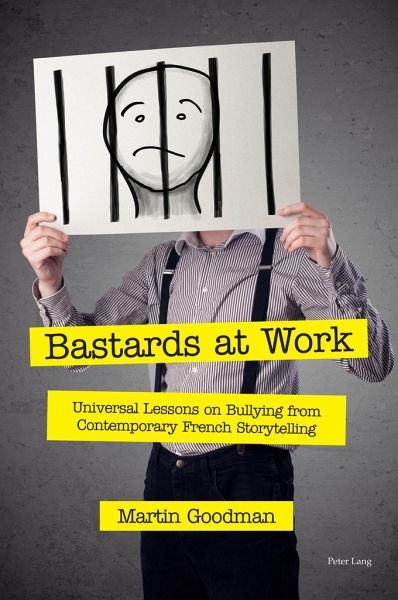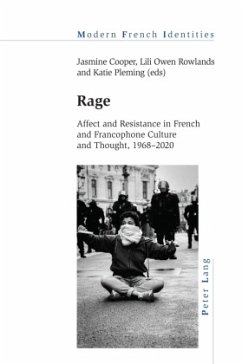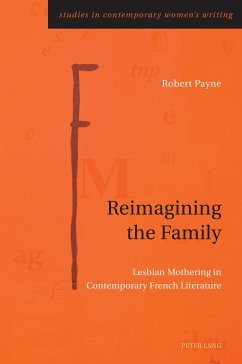
Bastards at Work
Universal Lessons on Bullying from Contemporary French Storytelling
Versandkostenfrei!
Versandfertig in 6-10 Tagen
66,20 €
inkl. MwSt.
Weitere Ausgaben:

PAYBACK Punkte
0 °P sammeln!
«A fascinating and unique insight into the phenomenon of workplace bullying through the prism of contemporary French fiction. The book captures the individual suffering and power dynamics that characterise bullying in the workplace, while situating this within wider debates in the social sciences, psychology and cultural studies.» (Sarah Waters, Professor of French Studies, University of Leeds)«Drawing on a rich range of examples, Goodman deftly probes the stories told about workplace bullying not simply as a vital topic in its own right but as an important way to explore the effects of neo...
«A fascinating and unique insight into the phenomenon of workplace bullying through the prism of contemporary French fiction. The book captures the individual suffering and power dynamics that characterise bullying in the workplace, while situating this within wider debates in the social sciences, psychology and cultural studies.» (Sarah Waters, Professor of French Studies, University of Leeds)
«Drawing on a rich range of examples, Goodman deftly probes the stories told about workplace bullying not simply as a vital topic in its own right but as an important way to explore the effects of neoliberalism on working lives. Tremendously well informed, the book will be of interest to students of both French culture and contemporary labour practices.» (Martin O'Shaughnessy, Professor, School of Arts & Humanities, Nottingham Trent University)
«As an academic plunge into the murky depths of French corporate life, Goodman's book is both intrepid and intimate. It is also singular. To date, no other Anglophone commentator has got to grips with the breadth of French fictional accounts of work to this extent. Building on the foundations laid by the studies of Sarah Waters, Martin O'Shaughnessy, and Jeremy Lane, Bastards at Work captures the miseries of twenty-first-century work, but also - best of all - the joys of writing about it.» (Anne M. Mulhall, H-France Review Vol. 23 (March 2023), No. 40)
Bullying is a social phenomenon that defines the contemporary workplace with much of the emphasis on psychosocial rather than physical suffering. In France, workplace bullying has emerged as a subject of intense interest and controversy among scholars, policy makers and cultural producers - notably novelists, playwrights and film directors. It has a high public profile as reflected in specific legislation, a wealth of critical literature on workplace suffering, and an extensive range of novels, plays and films. This study contextualises and analyses this wave of fictional storytelling that has emerged in France since the year 2000. It critically analyses more than a dozen such stories with a view to determining how they reflect the lived experiences of workers. Each story is considered from the perspectives of critical commentaries and research from France and elsewhere, focusing on the disciplines of philosophy, psychology, medicine, anthropology, sociology, literary analysis, economics, law and business management. This study also examines how fiction reflects changes in the nature of the French economy, organisations and work itself since the advent of neoliberalism in the 1980s.
«Drawing on a rich range of examples, Goodman deftly probes the stories told about workplace bullying not simply as a vital topic in its own right but as an important way to explore the effects of neoliberalism on working lives. Tremendously well informed, the book will be of interest to students of both French culture and contemporary labour practices.» (Martin O'Shaughnessy, Professor, School of Arts & Humanities, Nottingham Trent University)
«As an academic plunge into the murky depths of French corporate life, Goodman's book is both intrepid and intimate. It is also singular. To date, no other Anglophone commentator has got to grips with the breadth of French fictional accounts of work to this extent. Building on the foundations laid by the studies of Sarah Waters, Martin O'Shaughnessy, and Jeremy Lane, Bastards at Work captures the miseries of twenty-first-century work, but also - best of all - the joys of writing about it.» (Anne M. Mulhall, H-France Review Vol. 23 (March 2023), No. 40)
Bullying is a social phenomenon that defines the contemporary workplace with much of the emphasis on psychosocial rather than physical suffering. In France, workplace bullying has emerged as a subject of intense interest and controversy among scholars, policy makers and cultural producers - notably novelists, playwrights and film directors. It has a high public profile as reflected in specific legislation, a wealth of critical literature on workplace suffering, and an extensive range of novels, plays and films. This study contextualises and analyses this wave of fictional storytelling that has emerged in France since the year 2000. It critically analyses more than a dozen such stories with a view to determining how they reflect the lived experiences of workers. Each story is considered from the perspectives of critical commentaries and research from France and elsewhere, focusing on the disciplines of philosophy, psychology, medicine, anthropology, sociology, literary analysis, economics, law and business management. This study also examines how fiction reflects changes in the nature of the French economy, organisations and work itself since the advent of neoliberalism in the 1980s.














